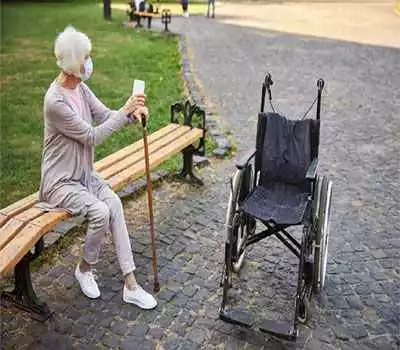When applying for Social Security Disability Insurance (SSDI), most people naturally focus on why they should receive benefits. It may, however, be helpful to change your perspective and focus on why you may be denied. In some cases, the cause is beyond your control. In other situations, you may be able to avoid doing things that lead to a denial of your claim.
When you are facing disabling conditions and want to file a claim to seek monetary benefits for your suffering, contact a disability lawyer. He will assist you throughout every step of the process.
Potential Reasons for Denial
- You Earn Too Much

Social Security Disability Insurance is a monetary compensation program for workers who have made qualifying payments into the Social Security system for many years through payroll taxes. One of the most fundamental reasons for being denied is because you have exceeded the threshold income limitations set by the Social Security Administration. You may be considered to be engaged in substantial gainful activity. This means that you have made too much money to be considered disabled.
When you apply for and get SSDI entitlement, you may still be able to earn an income in a limited capacity, but you cannot exceed the SGA limit, which is $1,310 per month as of 2021 (for non-blind people). This figure is adjusted annually. Investment income is not included in the figure. Only income earned through employment counts because it shows your ability to work.
- Your disability is temporary or is not severe enough
To be eligible and start the appeal process, the Social Security Administration must believe that your disability is severe enough to last for at least 12 months or result in death. Many claims, such as those based on fractures caused by acute trauma (such as car or motorcycle accidents), have been rejected because they are unlikely to cause disability beyond 12 months. Almost all fractures heal in less than a year. However, if your severe fracture does not heal properly after 6 months, you may be able to demonstrate to SSA that your disability will last for at least a year. Each case is evaluated individually.
- The SSA cannot find you
The SSA and state Disability Determination Services (DDS) are agencies that determine your eligibility for medical benefits and must be able to contact you about your application. If these agencies cannot contact you to schedule exams or communicate with you on critical issues, your claim for benefits may be denied.
If you appoint a representative (such as a lawyer) to process your application, you may not need to be contacted by SSA, but you must contact your representative or lawyer to continue the application process. If you are moving while your application is being considered, please make sure that SSA knows how to get in contact with you. Many claimants (people applying for Social Security disability) for SSI Eligibility and Benefits are rejected every day because SSA cannot find them.
- You refused to cooperate
Your medical records are essential to proving your disability. If you refuse to release these records to SSA, your claim may be denied. If you cannot reach the scheduled examination for any reason, please speak with your claims examiner so that DDS can arrange the examination at a time or location that is convenient for you. If you do not attend the examination after several attempts, your claim will most likely be rejected.
- The prescribed treatment was not followed
If you are being treated by a doctor but do not follow the treatment prescribed, you may be denied benefits. The SSA wants to evaluate how impactful your disability is while following prescribed treatment protocols. The SSA does, however, recognize specific legitimate reasons for noncompliance with a physician’s order (taking medication, going to a treatment appointment, or undergoing surgery).
- Acceptable medical excuses
For reasons beyond your control, you may be forgiven for not following the prescribed treatment plan. Here are some examples:
- You have a severe mental illness that prevents you from following the prescribed treatment.
- You have such an intense fear of surgery that it is not appropriate. Your attending doctor must confirm your level of fear to DDS.
- Inability to physically follow prescribed treatments without assistance, such as paralysis or cataracts due to diabetes.
- Acceptable non-medical excuses
For reasons unrelated to your medical condition, you may not follow the prescribed treatment protocols. The following are acceptable non-medical excuses for not following prescribed treatment.
- You have no money to pay for the treatment
- Your religious beliefs prohibit you from receiving treatment
- Your doctor has prescribed another treatment that you disagree with
- Drug or alcohol abuse
SSA may deny an application if drug or alcohol abuse significantly contributes to their disability. A DDS medical consultant must consider all factors when making a disability decision. The question is whether the SSA will still determine that you are disabled if you stop using drugs or alcohol.
Applicants usually have 60 days to appeal a denial of benefits. If you do not file an appeal within that time, you may need to reapply. Reapplying often leads to additional rejections.
A reputable San Antonio Disability Lawyer can review the information you have collected and assess your chances of being approved for benefits while also helping at every step of the way.